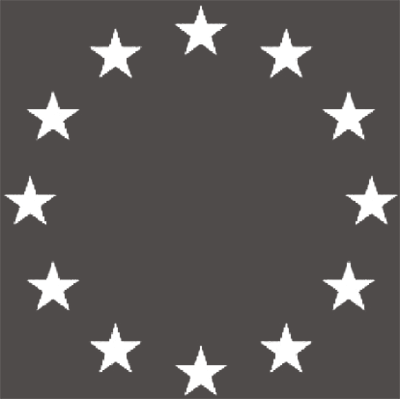Is a warehouse operator responsible for storing counterfeits?
The CJEU held that a company that only stores goods without knowing they are counterfeits does not infringe trademarks. So can logistics operators sleep easy? Not really.

If you use a trademark in Spain, you are also using it in the European Union
Genuine use of a trademark in the EU as a whole may be proved in certain circumstances by showing use of the mark in a single member state.

In-house procurement may not be compatible with EU law
The award of an in-house procurement satisfying the conditions laid down in Art. 12(1)(a)–(c) of Directive 2014/24/EU is not necessarily consistent with European Union law, the Court of Justice of the European Union held in the judgment of 3 October 2019 in Case C-285/18, Kauno miesto savivaldybè. This ruling is not controversial, nor does it change the principles developed over the years for excluding internal procurement from the regime of the procurement directives. Nonetheless, it gives contractors an additional argument for challenging contracting authorities’ decisions ignoring such basic principles as transparency.

ECJ ruling on FX mortgage loans in Poland: Is it really a breakthrough?
One of the most critical issues captivating banks and their retail borrowers in recent years in Poland has been the future of foreign currency loans, especially those denominated in or indexed to Swiss francs. After the political battle around such loans has settled, the issue is now mainly addressed in court proceedings between borrowers and creditors. A long-awaited judgment was issued by the European Court of Justice on 3 October 2019 and has already been followed by judgments of local Polish courts. Putting aside myths and hopes, we look closer at what may be the actual consequences of the ECJ ruling for all interested parties: borrowers and both primary and secondary creditors.

Type of trademark and evaluation of its genuine use
The Court of Justice has finally resolved the case of an EU trademark displaying an X on the side of a sports shoe. The German company Deichmann SE sought revocation of the registration, claiming there was no genuine use of the mark.

Court of Justice on the rule of law: Analysis of the judgment
In the judgment issued on 24 June 2019 in Commission v Poland (Case C-619/18), the Court of Justice held that the law reducing the retirement age of judges of the Supreme Court of Poland violated Art. 19 of the Treaty on European Union, which amplifies the principle of the rule of law set forth in Art. 2 of the treaty. Why was this judgment issued?

Tic-Tac prevails in dispute over MIK MAKI dragee container
In a judgment of 6 March 2019, the Court of Justice of the European Union gave its final ruling on a case surrounding invalidation of a community design presenting the box for MIK MAKI dragees. The invalidation was being sought by Ferrero SpA, claiming infringement of its registered figurative mark for Tic-Tac packaging.

No supplementary protection for a new form of an active substance
In a judgment of 21 March 2019 (C-443/17) the CJEU reiterated the need for a precise and concise interpretation of the term “protected product” under Regulation (EC) 469/2009 concerning the supplementary protection certificate for medicinal products. The CJEU stressed that this term only applies to an active ingredient of a medicinal product, and not combination with other substances that do not have an independent therapeutic effect.

The Court of Justice of the European Union (CJEU) did not determine whether rule of law is breached in Poland
The judgment issued on 25 July following a request for a preliminary ruling from an Irish court in case C-216/18 PPU L.M. does not essentially differ from the opinion issued by the advocate general. The CJEU stated specifically the circumstances in which the executing authority can find an exception to the principle of mutual recognition, but placed the final decision in the hands of the national court executing the European arrest warrant.

Louboutin wins case to defend red-soled shoes as a trademark
The European Court of Justice (CJEU) has ruled that Christian Louboutin’s famous red sole does not consist solely of a shape that significantly increases the value of a product, and therefore can be registered as a trademark. This is an important victory for the fashion designer in the long-running battle concerning red-soled shoes.

The Commission pushes forward on intra-EU investment protection
Earlier this year, the European Commission scored an important success in its campaign against intra-EU Bilateral Investment Treaties. The CJEU’s judgment in the Achmea case1 confirmed the Commission’s standpoint that a system that allows an investor from one EU Member State to challenge in international arbitration measures taken against its investment by another, host EU Member State, is incompatible with EU law.

European arrest warrant and determining whether rule of law is observed
On 28 June 2018 the advocate general at the European Court of Justice issued an opinion regarding a request for a preliminary ruling from an Irish court on whether the judicial authority executing a European arrest warrant against a citizen of a different EU member state is required to postpone execution of the warrant in order to determine whether there is a real risk of breach of the right to a fair trial in the issuing state due to deficiencies in the system of justice of the issuing state.
